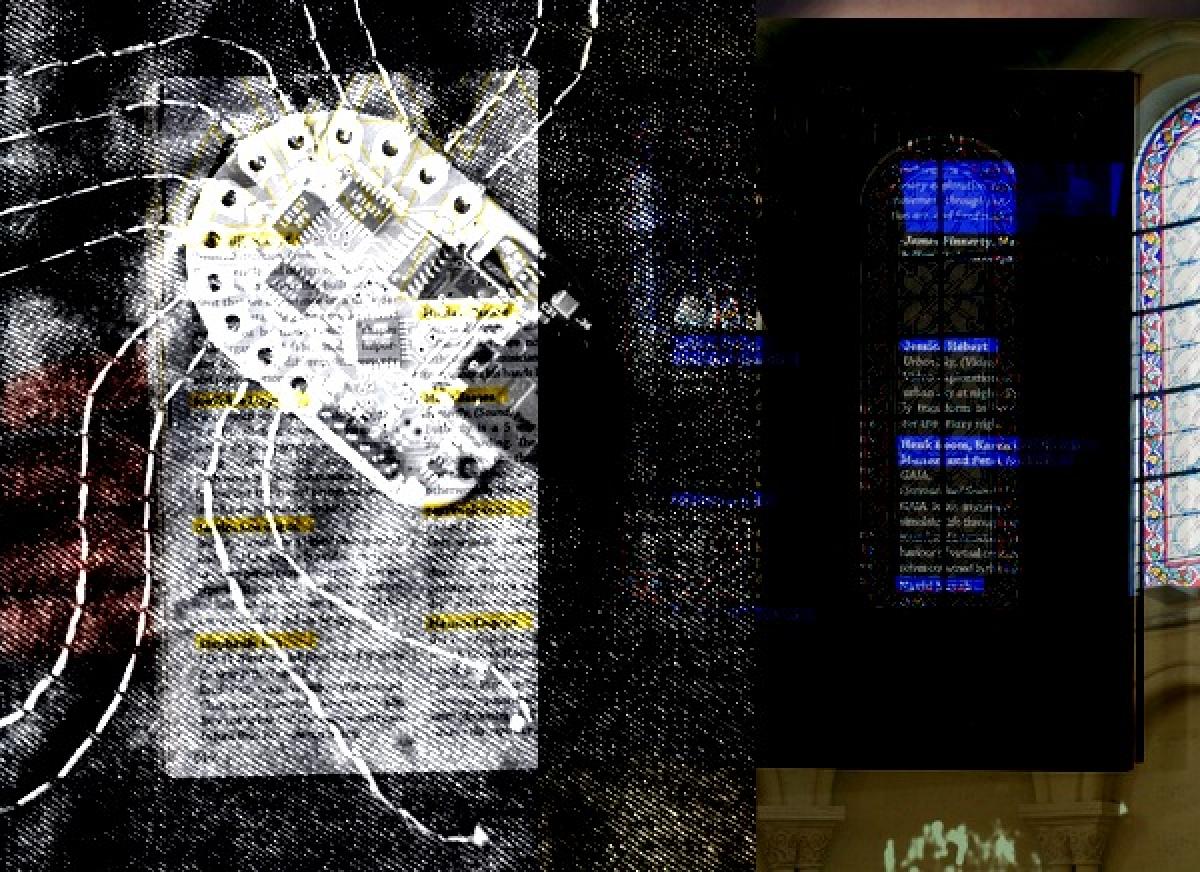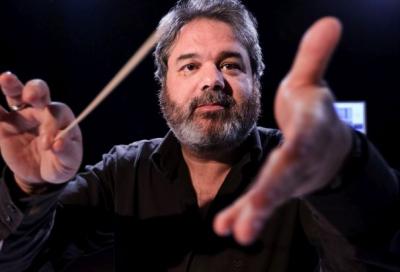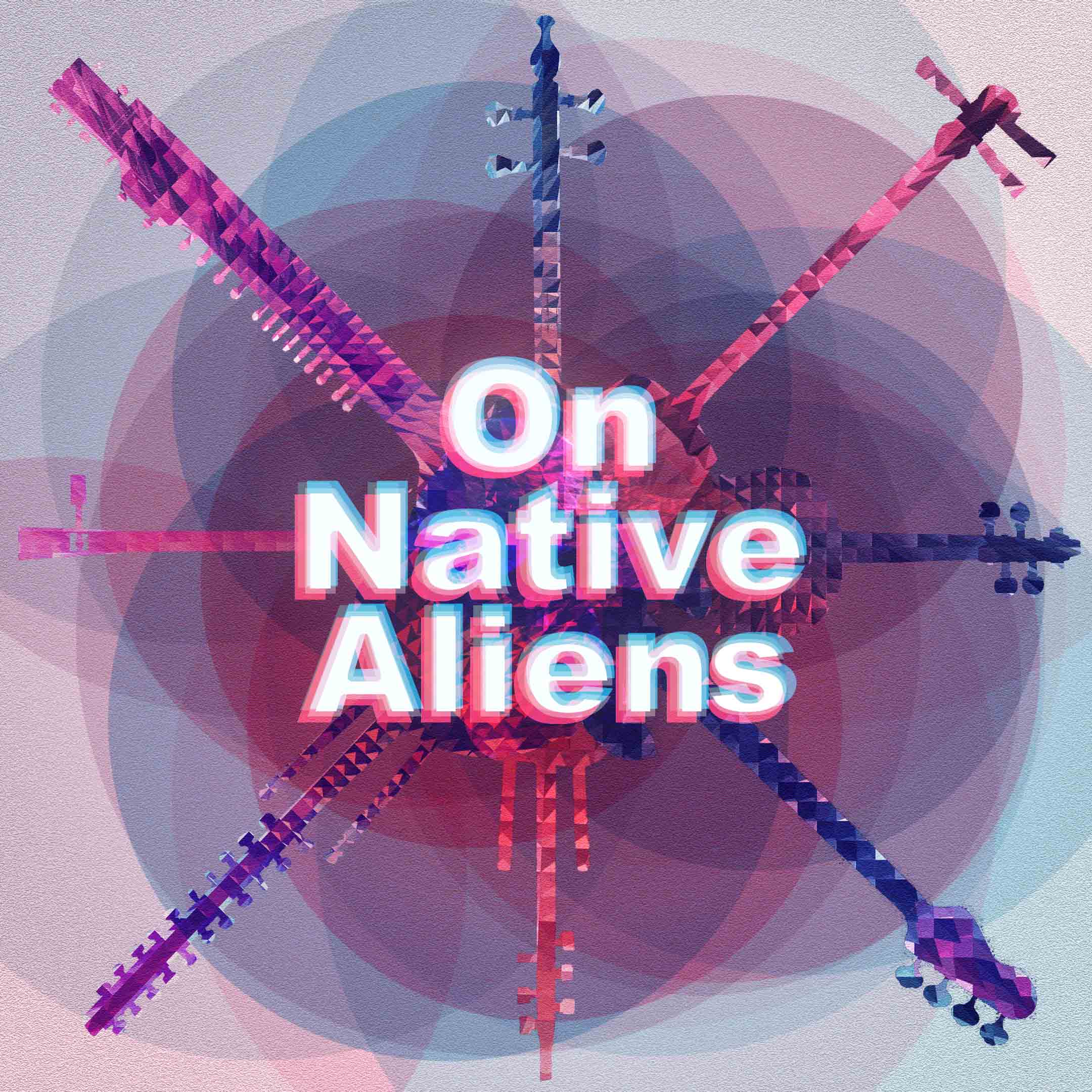
On Native Aliens
Sandeep Bhagwati works in various musical traditions and has roots in Asia, Europe and North America. He self-identifies as a Native Alien and claims: to feel unquestioned ties to one’s own place. From the Norient book Seismographic Sounds (see and order here).
Do you like and trust people more easily just because they speak your dialect and share your customs? Does your heart warm to any particular place or language more than to any other? Then you are a native at heart, even if you are momentarily elsewhere. You may feel displaced, an emigré or refugee – and yet that only means that there indeed is a home where you feel you should rightfully be. But more and more of us have never known what a home feels like: some left their place of birth early in life, yet are regarded as aliens where they are now. Others, born where they still live, simply never were made to feel welcome. Still others, such as myself, have always lived in several homelands at once – and thus in none. You global vagrants, you born out of «placelock», I will call you: Native Aliens.
Native Aliens are curious creatures: they are always alert, master the lingos of many locales, have learnt their implicit, unspoken codes, and thus can move and feel like the locals, live in their circle of warmth. We Native Aliens can fit into many places, and all these may sometimes feel just like home to us – and yet, at the same time, uncannily alienating. And we, therefore, are always aware how this native intimacy relates to a wider, alternative world. We are, in the truest sense of this ethnological term, participant observers. The more streets, dinners, or customs we learn to navigate with native intuitive ease, the more each of them becomes an implicit critique of all the others – they mutually invalidate each other’s nativist claims to exclusive devotion.
On Home-Addicts and Sober Guests
A native, of course, cannot yield to such equivocations: to feel unquestioned ties to one’s own place, its customs and people is essential to being a native. Granted, attachment to a place, its people and its traditions is not bad in itself – as long as you do not become suspicious of your co-locals who do not feel it, as long as you do not go «nativist». In any case, there is no need to fear Native Aliens: our acute observations are not enemy intelligence, they are essential survival tools of the lonely. For to be a Native Alien does not mean to be free of the desire to belong, nor to shun the pleasures and amenities of a home – but it does mean: to not be a home-addict. For we have observed how «belonging» so often will slide into vicious addiction: how it must be enjoyed in moderation. The loneliness of Native Aliens is that of the sober guest reveling with drunken friends - ready to blend in and enjoy the fun, but always on edge for when the mood turns sour, prepared to leave the feast at any hour.
Musicking,1 too, can lift your soul with drunken abandon. Some will maintain that this is indeed its raison d’être. But there is another way to listen to musicking: as an intelligent discourse. For example, Adorno’s ideal listener knows so much that each instance of musicking is like reading an open book, where every detail is treasured not just because it delights, but because it also affords a glance into the emotional lives and thoughts of others: this phrase intends to make the listeners sad, this rhythm wants them to dance, this melody is likely meant to be wistful, this sound aims to impress with its complex inner life, this loud passage is placed there to steamroll all that is left of our critical stance. This is the way, I believe, that Native Aliens listen to musicking. It certainly is how I, as a composer, hear all that I listen to: for me no musicking will ever stand alone, free and absolute. I only can hear it as something made-and-used for a purpose, a form that embodies its makers’ intentions, and sways to its listeners’ prejudices. How musicking appears in my ears will unfailingly make it a sign of its times, part of a cultural gambit, a seismograph of its society, a metaphor for life itself.

On Musical Nativists and World-Wise Listeners
When people want their music to be «pure», «true», «absolute» or «authentic», they want to forget the world outside and enjoy feeling at home – in «their» music. A recent data crunch of Spotify users found that musical taste, apparently, solidifies by the age of thirty. Most people do not actively seek out new kinds of musicking afterwards. At this point, many even become musical nativists, declaring their own taste to be the ultimate arbiter of quality. For them, the living process of musicking becomes an object, a kind of mirror in which they want to encounter their idealized selves. A musical nativist can thus be as intolerant towards other musics as a political nativist can be towards immigrants - whether what they prefer is commercial, classical or seemingly groundbreaking avant-garde sound.
Hence all the loneliness of the musical Native Aliens: to us, musicking will always be such a mess, such a muddled attempt not at style, progress or authenticity, but at sounding the murky terrain of today’s global existence, crisscrossed and splintered by a million agendas, ideas, hopes – and sounds. Our dharma as musickers and world-wise listeners is to navigate these uneven terrains of the audible, to not sink to the bottom, to grasp neither at the facile promises of nativist agendas nor at those false-hope esperantists who claim that musical sound is the one ur-language we can all speak at birth. For musicking, being an act of making, can never be our home: rather, it is like a bundle of paths towards discovery, our multiple tool to make sense of the world around us. In the presence of all those mirror-listeners we sometimes feel deeply alone. But more and more of us are born into the alienation I sketched above - and they are changing musicking already. Dear patient reader: might you, perchance, be a Native Alien, too?
- 1. The term «musicking» was introduced twenty years ago by musicologist Christopher Small to indicate that music is neither object nor finished product, but always an activity and an ecosystem that encompasses music makers, music listeners and music enablers (researchers, curators, presenters, critics, roadies etc.).
This text was published first in the second Norient book Seismographic Sounds.
Biography
Shop

Published on July 24, 2018
Last updated on April 10, 2024
Topics
How do musicians fill or widen the gap of feeling at home in a world that is radically unhomely?
A form of attachement beyond categories like home or nation but to people, feelings, or sounds across the globe.
Loneliness can feel like isolation, but can also be a positive solitude by keeping distance from the worlds’ chaos.
Place remains important. Either for traditional minorities such as the Chinese Lisu or hyper-connected techno producers.
Special
Snap


